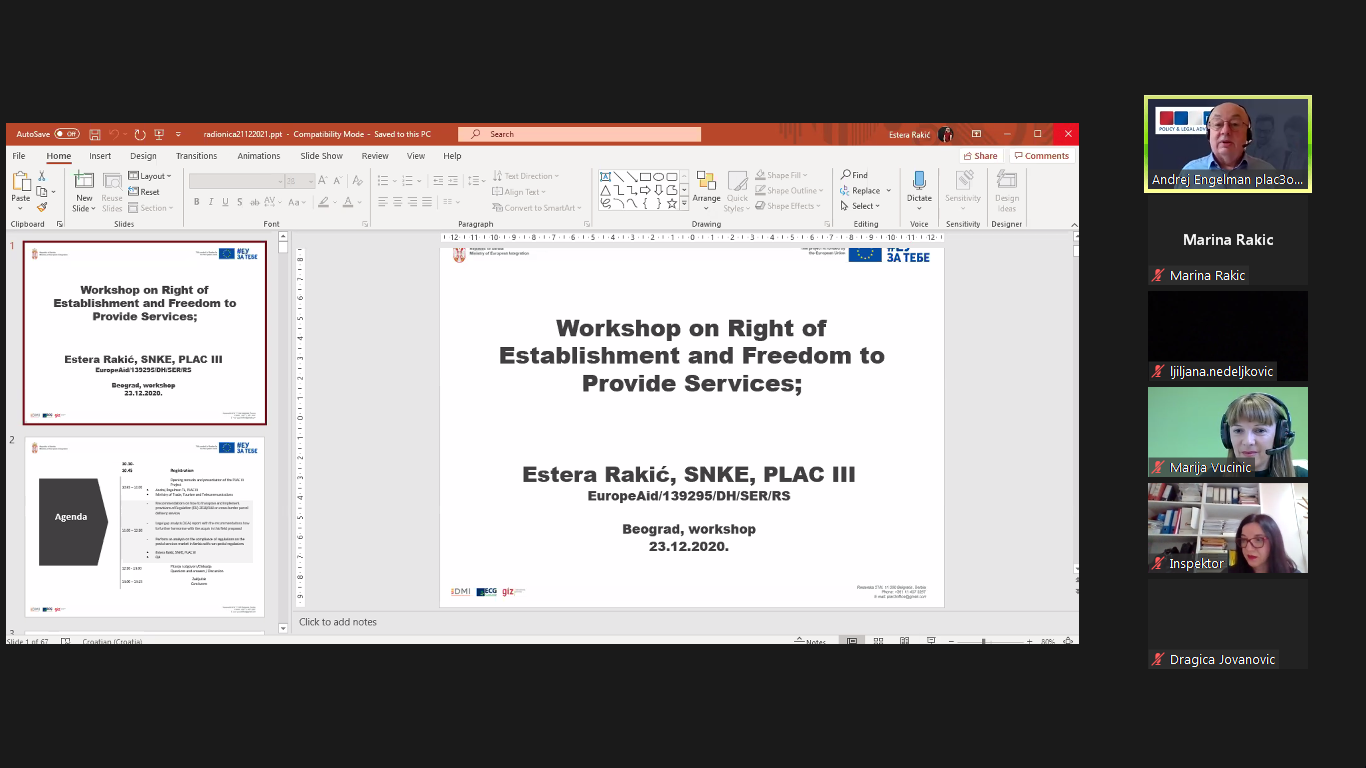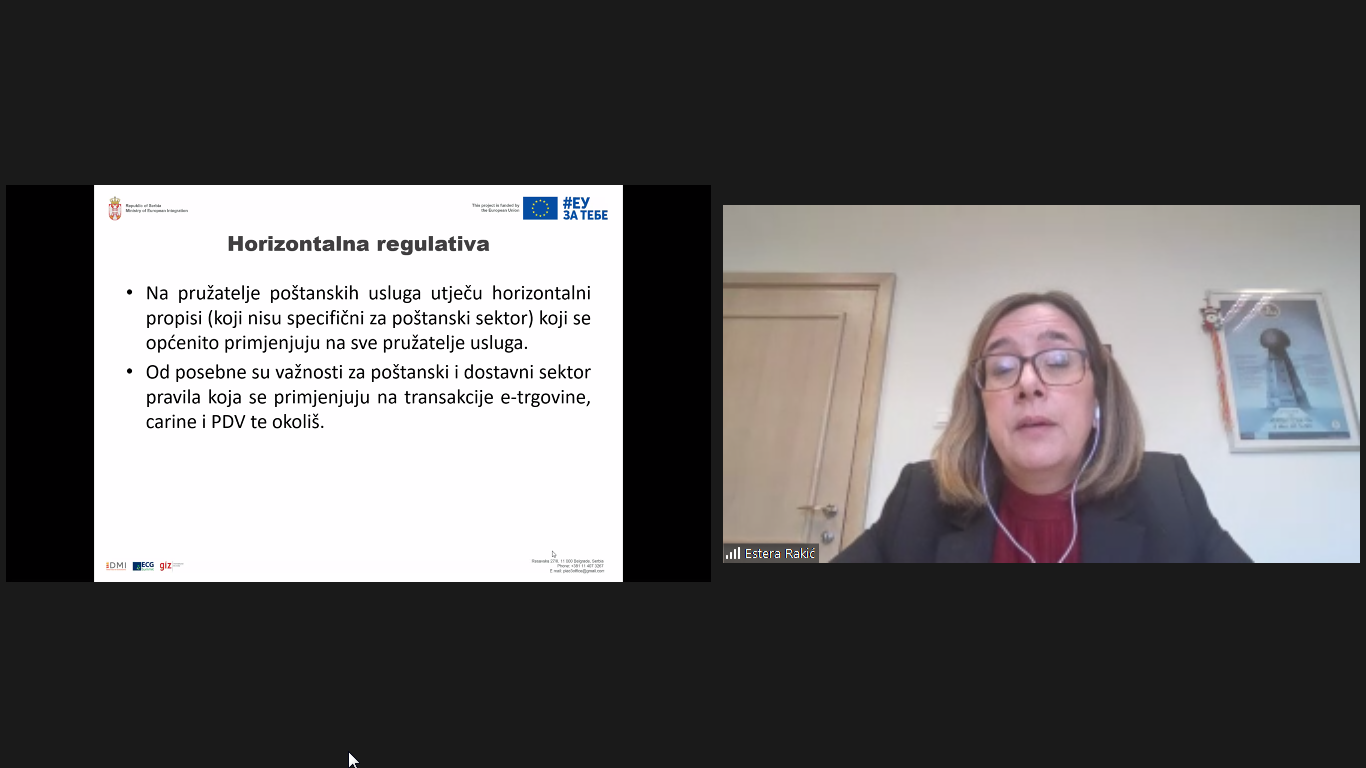Towards full harmonisation of legislation on postal services
The PLAC III project has provided support to the Ministry of Trade, Tourism and Telecommunications in harmonising legislation on postal services that has also included the drafting of a national strategy for postal services for the period until 2024. The final workshop presented the results of an expert analysis that completes the process of harmonisation in this sub-area of the Negotiation Chapter 3.
The Law on Postal Services, which entered into force in November 2019, is in line with the relevant Union acquis (Postal Directive - Directive 97/67/EC, Directive 2002/39/EC on further opening of the postal services market) and with most provisions of the so-called Third Postal Directive 2008/06/EC). A total of 16 by-laws were also passed in the period of one year after the adoption of the Law.
Recommendations for harmonisation of the Law with Regulation 2018/664 on cross-border parcel delivery services, as well as with horizontal legislation that refers to non-postal areas were presented at a workshop held on 21 December 2021.
As project expert Estera Rakić said, the analysis revealed that among the 16 by-laws, a large number are intertwined. It is recommended to amending the Law, while merging some by-laws which would reduce the number of internal acts to 10.
Among the proposals for harmonisation with the Directive on cross-border parcel delivery services is the definition of postal service as a service related to "domestic and international shipments", as well as the introduction of "digital home mailbox", i.e. the e-box, where delivery is possible with prior consent of the consignee. In doing so, the postal service provider must ensure the confidentiality of personal data is protected in accordance with the GDPR Regulation, which applies throughout the EU. A solution is also proposed according to which the user can submit a possible complaint to the Consumer Protection Commission.
In relation to the horizontal regulations that have an impact on the provision of postal services, the Law on Postal Services was analyzed in relation to "non-postal regulations" relating to state aid, dangerous goods in postal items, consumer protection, and sustainable development. Special emphasis was put on the so-called eiDAS Regulation (Regulation 910/2014) on electronic identification and trust services for electronic transactions in the internal market, which provides a legal basis for electronic remote user identification in EU Member States.
In the area of state aid rules, as Rakić said, granting state aid to public postal operators is a common practice in EU countries, but it must be programmed, usually for a period of 5 to 10 years.
The workshop was attended by representatives of the relevant Ministry, as well as the Republic Telecommunications Agency (RATEL).





